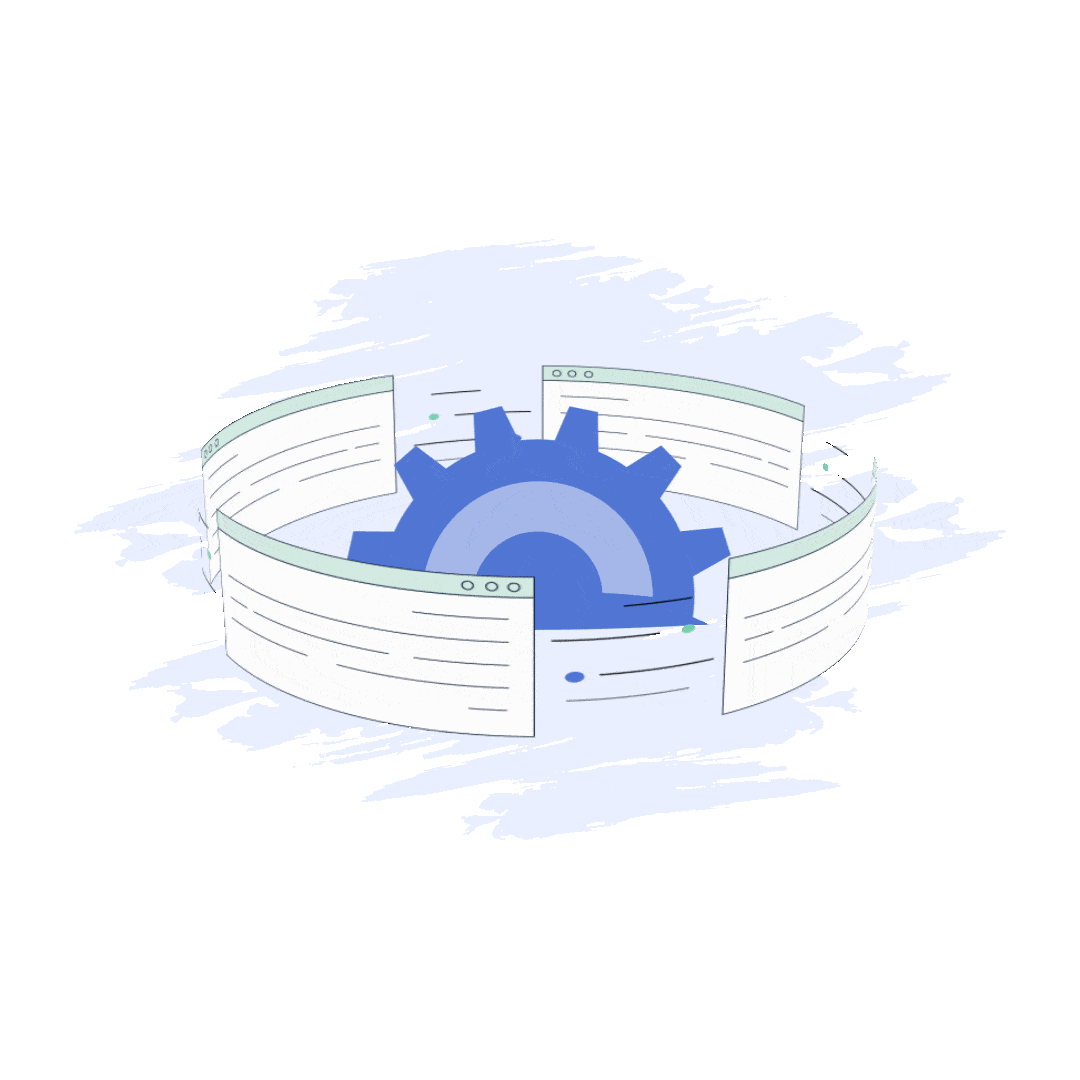Why Zamp?
Combining technology and help from sales tax experts is a game changer.
We do the heavy lifting, so you don’t have to.

Fully Managed Solution
Stressing over sales tax is a thing of the past. All you do is click approve, and we handle the rest. You'll always be up-to-date and sales tax compliant.

Developer Friendly Sales Tax API
Connect your existing e-commerce, marketplace & ERP systems within minutes, and use Zamp’s API for roof-top accurate sales tax calculations.

One Price
One simple price that scales with your business. No overages, no hidden fees, no surprises.
Ecommerce API Integration
- The Role of APIs in Modern E-Commerce Ecosystems
- How API Integration Enhances Online Store Functionalities
- The Impact of API Integration on Sales Tax Management
- The Importance of Sales Tax Compliance in E-commerce
- Implementing Sales Tax APIs for E-commerce Platforms
- Choosing the Right Sales Tax API for Your Online Store
- Challenges and Solutions in Sales Tax API Integration
- Future Trends in E-commerce and Sales Tax Compliance
- The Advantages of Leveraging Technology for Sales Tax Compliance
- Ecommerce API Integration FAQ
An e-commerce API integration is like giving your online store the ability to communicate and work together with various other software systems. This seamless interaction is crucial in the modern e-commerce landscape, where efficiency and customer satisfaction are key to success. By using APIs, your online store can link up with payment systems, inventory databases, shipping services, and more, automating tasks that would otherwise take up valuable time and resources.
The Role of APIs in Modern E-Commerce Ecosystems
APIs act as essential building blocks that allow your store to be more than just a standalone entity; instead, it becomes part of a larger, interconnected ecosystem. With APIs, your online platform can:
- Connect with Payment Gateways: Instantly process payments through services like Stripe or PayPal.
- Sync with Inventory Systems: Update product availability in real time by connecting to your inventory management system.
- Integrate with Shipping Providers: Automate shipping calculations and label printing by connecting with carriers such as UPS or FedEx.
- Integrating with Sales Tax Software: Automatically calculate and manage sales tax by integrating with specialized sales tax software, ensuring compliance with local and international tax laws.
This connectivity not only streamlines operations but also helps you adapt to market changes quickly, giving you a competitive edge.
How API Integration Enhances Online Store Functionalities
API integration transforms your online store by enhancing its functionalities in several ways:
- Streamlined Operations: Automate routine tasks such as stock updates, order processing, and customer notifications, allowing you to focus on growth and customer engagement.
- Improved Customer Experience: Offer real-time updates, quicker checkouts, and personalized shopping experiences that lead to higher customer satisfaction and retention.
- Data Insights: Gain valuable insights from integrated systems (like CRM tools) to better understand customer behaviors and preferences, enabling more targeted marketing strategies.
The Impact of API Integration on Sales Tax Management
Managing a sales tax API can be complex, especially when dealing with different regions with varying tax laws. However, API integration simplifies this aspect of running an online store by:
- Automating Tax Calculations: Connect with tax calculation services to automatically determine the correct amount of sales tax to charge based on the customer’s location and what’s being purchased.
- Ensuring Compliance: Keep up with ever-changing tax regulations without manual oversight, reducing the risk of errors and non-compliance.
Streamlining Reporting: Generate accurate sales tax reports that are ready for tax filing, saving time and reducing the stress associated with tax periods.
Book a call today
We'll answer all of your sales tax questions & address any of your concerns to ensure that you never have to worry about sales tax again-
1Book a free 30 minute call
-
2Meet with one of our experts
-
3Get sales tax off your plate
The Importance of Sales Tax Compliance in E-commerce
Sales tax compliance is a critical component for any e-commerce business. Understanding and adhering to the various tax laws can be challenging, but it's essential for operating legally and maintaining a good reputation with both customers and authorities. Failure to comply can lead to hefty fines and legal issues, which can harm your business.
Understanding the Complexities of Sales Tax in Online Transactions
Sales tax regulations vary widely depending on the location—both where your business is based and where your customers are located. As your online store reaches a wider audience, managing these complexities becomes increasingly difficult. Each transaction might require different tax rates or be subject to different rules, making the task of calculating sales tax daunting without the proper tools.
The Need for Accurate Sales Tax Calculation and Reporting
Accurate sales tax calculation ensures that you are collecting the right amount of tax from your customers. Overcharging can dissuade potential buyers, affecting your sales and customer trust. Undercharging, on the other hand, can lead to tax deficits where your business is liable for the difference, impacting your financial health. Equally important is accurate reporting, which is necessary for tax filings and maintaining compliance with tax authorities.
Benefits of Automating Sales Tax Compliance Through APIs
Automating sales tax compliance through API integration offers significant benefits:
- Accuracy and Efficiency: Automated systems calculate the correct tax rates in real time, reducing errors associated with manual calculations.
- Compliance with Regulations: Stay updated with the latest tax laws without manual intervention. APIs can adjust to changes in tax regulations, ensuring compliance at all times.
- Time Savings: Reduce the administrative burden of handling taxes manually, freeing up resources that can be better spent on growing your business and improving customer service.
- Enhanced Reporting Capabilities: Generate detailed reports effortlessly, making it easier to analyze data and prepare for audits or tax filings.
Implementing Sales Tax APIs for E-commerce Platforms
Incorporating sales tax APIs into your e-commerce platform can greatly simplify the process of calculating and managing sales taxes across different regions. This guide will walk you through the steps to integrate sales tax APIs, help you choose the right one for your business, and share best practices for a seamless integration process.
Steps to Integrate Sales Tax APIs with Your E-commerce Platform
1. Assess Your Needs: Determine what specific features you need from a sales tax API. Consider factors such as the regions you sell to, the volume of transactions, and specific compliance requirements.
2. Research and Select an API: Look for APIs that are reliable and support the regions where your customers are located. Read reviews, check their compliance updates, and evaluate their integration support.
Here are details on Zamp’s integrations:
3. Setup and Configuration: Register for the API, obtain the necessary API keys, and configure the settings to match your specific needs. This might include setting up tax rates for different locations or specifying product tax categories.
4. Integration: Integrate the API with your e-commerce platform. This often involves adding code to your site that connects your shopping cart and checkout systems to the API. If you’re not technically skilled, consider hiring a developer.
5. Testing: Before going live, thoroughly test the API in a staging environment to ensure it calculates taxes correctly and handles various scenarios without issues.
6. Go Live and Monitor: Once testing is complete, launch the integration in your live store. Monitor the system for any issues and ensure it’s updating correctly with any changes in tax laws.
Choosing the Right Sales Tax API for Your Online Store
A suitable API should not only meet your current needs but also adapt to future changes and growth. Here are key factors to consider when selecting a sales tax API, to ensure that the sales tax handling process is seamless, effective, and compliant with sales tax regulations.
- Accuracy and Reliability: Choose an API that provides accurate tax calculations and is known for uptime and reliability.
- Ease of Integration: Look for APIs that provide clear documentation and support, making integration as straightforward as possible.
- Scalability: Ensure the API can handle your current transaction volume and grow with your business.
- Compliance Features: Opt for APIs that offer automatic updates to stay compliant with changing tax laws.
Best Practices for a Seamless Integration Process
Successfully integrating a sales tax API into your e-commerce platform requires careful planning and adherence to best practices. This section outlines essential steps to ensure a smooth and effective integration process.
- Keep Your Documentation Handy: Have all your business and tax information on hand before starting the integration process.
- Use Sandbox Environments: Leverage the API’s sandbox environment to test your integration without affecting your live operations.
- Regularly Update and Maintain: Schedule regular check-ups and updates for your API integration to handle any new tax laws or API features.
- Plan for Backup: Implement fallback procedures in case the API fails. This ensures that your sales process can continue smoothly without interruptions.
Challenges and Solutions in Sales Tax API Integration
Integrating a sales tax API into an e-commerce platform can streamline operations but also comes with its own set of challenges. Understanding these challenges and how to overcome them can help ensure a successful implementation. Additionally, staying aware of future trends in e-commerce and sales tax compliance can prepare businesses for evolving requirements.
Common Challenges Faced During Sales Tax API Integration
1. Complex Tax Regulations: Different jurisdictions have varying tax rules, which can complicate the integration process.
2. System Compatibility: Ensuring that the sales tax API is compatible with existing e-commerce platforms and accounting software.
3. Data Accuracy: Maintaining accurate data for tax calculations, such as customer locations, product taxability status, and applicable tax rates.
4. Performance Issues: Handling high volumes of transactions without slowing down the checkout process.
Solutions to Overcome Integration Obstacles
1. Thorough Research and Planning: Before integration, understand the specific tax requirements of all regions where you operate. This preparation can help tailor the API to handle diverse tax rules.
2. Choosing the Right API Provider: Select an API provider that offers robust support and documentation, ensuring their system aligns well with your existing e-commerce setup.
3. Regular Updates and Maintenance: Keep the API and your data up to date to handle changes in tax laws and ensure accuracy. Regular testing and updates can mitigate the risk of errors.
4. Scalable Solutions: Opt for APIs that can scale with your business volume, supporting high transaction loads without compromising performance.
Future Trends in E-commerce and Sales Tax Compliance
As e-commerce continues to evolve, so too does the landscape of sales tax compliance. This section explores key trends that are likely to shape the future of how businesses manage sales taxes in the digital marketplace.
1. Greater Automation: As technology advances, expect more sophisticated automation in sales tax calculations, reducing the need for manual input and increasing efficiency.
2. Unified Global Standards: There may be movements toward more standardized tax regulations across different regions, simplifying sales tax compliance for global e-commerce businesses.
3. Real-Time Compliance: Technological improvements could enable real-time tax compliance updates, ensuring businesses always apply the correct tax rates and rules.
4. Increased Use of AI and Machine Learning: These technologies might be employed to predict tax law changes, optimize tax solutions, and personalize the tax handling process based on historical data trends.
The Advantages of Leveraging Technology for Sales Tax Compliance
Utilizing technology, specifically sales tax APIs, offers significant advantages. These include real-time tax rate determination, automatic updates to comply with changing regulations, and streamlined reporting features that simplify the end-to-end process of sales tax management. This level of automation significantly reduces the manual effort required, minimizes human error, and allows business owners to focus more on growth and less on administrative tasks.
For e-commerce businesses, investing in robust API integrations is not just a strategic move—it's an essential step towards ensuring compliance and enhancing operational efficiency. The right sales tax API can provide a scalable solution that grows with your business, adapting to new markets and regulations seamlessly. In an environment where both technology and tax laws are constantly evolving, having a dependable system in place to manage sales tax compliance is invaluable.
With the right API integration, businesses can ensure that they remain compliant, reduce risk, and provide better service to their customers, thereby reinforcing their position in the market and paving the way for continued success.
We invite you to explore Zamp and our distinctive approach to sales tax management. Zamp offers an innovative solution specifically designed to streamline the complexities of sales tax for online retailers.
Whether you're ready to discuss your needs over the phone or you'd like a more interactive experience with a live demo, we're here to assist you. Take advantage of this opportunity to see how Zamp can simplify sales tax compliance for your business. Don't hesitate to reach out and learn more about how we can help make sales tax management easier for you.
Book a call today
We'll answer all of your sales tax questions & address any of your concerns to ensure that you never have to worry about sales tax again-
1Book a free 30 minute call
-
2Meet with one of our experts
-
3Get sales tax off your plate
Ecommerce API Integration FAQ
E-commerce API integration involves connecting your online store's system with external software applications using APIs (Application Programming Interfaces). This allows your e-commerce platform to seamlessly share data and functionalities with other services, enhancing capabilities such as payment processing, inventory management, shipping logistics, and sales tax calculation.
API integration is crucial for automating processes, enhancing user experiences, and expanding functionality without manual intervention. It helps streamline operations, reduce errors, and ensure that different parts of your business can communicate efficiently. This leads to faster processing times, improved customer service, and better management of backend operations.
Multi-state sales tax exemption forms can typically be obtained from the website of each state's taxing authority or department of revenue.
Common e-commerce APIs include payment gateways like PayPal and Stripe, shipping APIs like FedEx and UPS, inventory management systems, and CRM systems like Salesforce. Sales tax APIs, such as those provided by Zamp, are also popular for automating tax calculations based on the latest regulations.
When selecting APIs for integration, consider factors such as compatibility with your existing platform, the reliability of the service provider, ease of integration, and the level of customer support offered. Additionally, assess whether the API meets your specific needs in terms of functionality and scalability to accommodate your business growth.
Start by identifying the key areas of your business that would benefit from automation and enhanced functionality. Consult with your IT team or a professional developer to evaluate available APIs that fit your requirements. Plan the integration carefully, ensure all systems are compatible, and perform thorough testing before going live to avoid disruptions in your e-commerce operations.
- The Role of APIs in Modern E-Commerce Ecosystems
- How API Integration Enhances Online Store Functionalities
- The Impact of API Integration on Sales Tax Management
- The Importance of Sales Tax Compliance in E-commerce
- Implementing Sales Tax APIs for E-commerce Platforms
- Choosing the Right Sales Tax API for Your Online Store
- Challenges and Solutions in Sales Tax API Integration
- Future Trends in E-commerce and Sales Tax Compliance
- The Advantages of Leveraging Technology for Sales Tax Compliance
- Ecommerce API Integration FAQ
Book a call today
We'll answer all of your sales tax questions & address any of your concerns to ensure that you never have to worry about sales tax again-
1Book a free 30 minute call
-
2Meet with one of our experts
-
3Get sales tax off your plate


